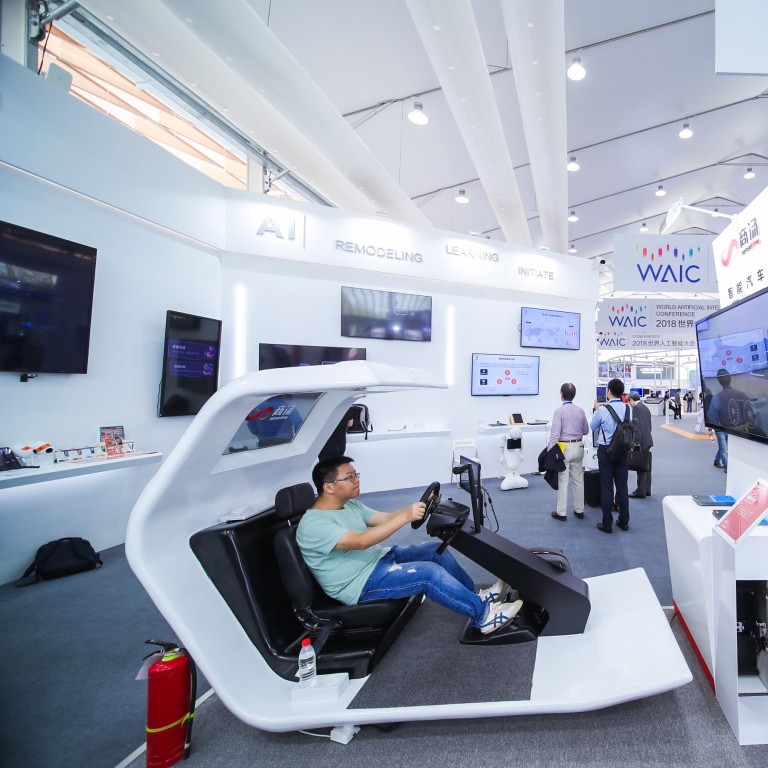
Can China’s tech industry up its game and take the lead when it comes to innovation and research?
- China recently signalled its ambition to become a global tech superpower
- Investors say sentiment towards enterprises that provide hi-tech solutions to companies instead of simply serving consumers is definitely rising
It used to be the case that Chinese tech companies built a foundation in the domestic market by copying the business models of successful US companies and localising them to make them more relevant for Chinese consumers.
Baidu was China’s answer to Google, Sina Weibo was China’s Twitter and Alibaba’s Taobao was a Chinese version of eBay, with some incremental tweaks.
Today that is changing and companies in China’s rapidly expanding tech sector are now driving fundamental innovation that is increasingly being adopted elsewhere, according to many investors who attended an Asia Venture Capital Journal private equity forum in Beijing last week.
“It used to be called either ‘me too’ or ‘me better’, which means Chinese companies learned from the US model and then sought to replicate or improve it for the Chinese market,” said Jonathan Wang, partner at Orbimed, an investment firm that focuses on health care.
“But now, fortunately we’re seeing real innovation coming out of China and not just copying,” said Wang, adding that in his field of health care many new medicines and treatments are now being produced in China and bought by US companies.
China has recently signalled its ambition to become a global tech superpower, with top leaders – including President Xi Jinping – saying science and technology is one of the main battlefronts of the economy. Part of the campaign is the “Made in China 2025” strategy unveiled in 2015, which aims to break the country’s reliance on foreign technology in sectors such as robotics, semiconductors, aerospace and new-energy vehicles.
At the recent National People’s Congress, Beijing also called on the private sector to beef up its investment in basic research, which is seen as a foundation for China to cut its reliance on foreign technology. Basic research aims to improve scientific theories – which can then be used to improve applied technologies and techniques. China is often seen as being good at applications but less strong in fundamental research.
“China has seen some developments in fundamental innovation recently, especially in the areas of 5G and quantum communications,” said Xiong Zhang, professor of computer science at Beijing University of Aeronautics and Astronautics. “But China is still trying to catch up with the Western leaders in most fields.”
However, China has already surpassed the US in number of published artificial intelligence papers, and the country’s AI researchers are poised to be in the top 50 per cent of most cited papers this year and in the top 10 per cent next year, according to findings by the Allen Institute for Artificial Intelligence, a Seattle-based non-profit that conducts research and engineering projects.
“Citation counts are a lagging indicator of impact, so our results may understate the rising impact of AI research originating in China,” the report said.
But even the experienced investors attending the forum thought Chinese tech companies need to do more in the realm of fundamental research.
“If you look at the composition of unicorns in China, 50 per cent of them are e-commerce-related or focused on the commercialisation of B2C (to consumer) models, whereas 40 per cent of [US counterparts] are focused on AI and robotics, areas that are more related to fundamental research,” Esther Wong, managing director of strategic investment at SenseTime, one of the world’s biggest AI unicorns, said at the same conference.
Nevertheless, Wong said that in China’s investment industry, opportunities and sentiment towards enterprises that provide hi-tech solutions to companies instead of simply serving consumers was definitely rising.
Last month, the most invested sectors in China involved enterprise services and health care by deal volume, with both areas recording 27 deals in February, according to data firm Zero2IPO.
“From next year, we expect to see big enterprise companies rising in China,” said Herry Han, founding partner of Lightspeed China, a venture capital firm focused mainly on A-series financing, at the forum.
China’s private investment market has also seen the effects of this change in sentiment over the past year, where more money has flowed into bigger and better funds focused on innovative start-ups, said Han.
The days of easy money are over in China – venture capital deals plunged 67.5 per cent by value in January year on year according to Zero2IPO – and the country’s easy traffic acquisition days are also over with the low-hanging fruit already picked. This is forcing many companies to innovate.
“The time when you could easily buy traffic and achieve growth has ended in China,” said Linda Cai, a partner at Loyal Valley Capital, a China-based private equity firm. “So we plan to position ourselves more in content-related companies because quality content will always draw people in,” she added.

